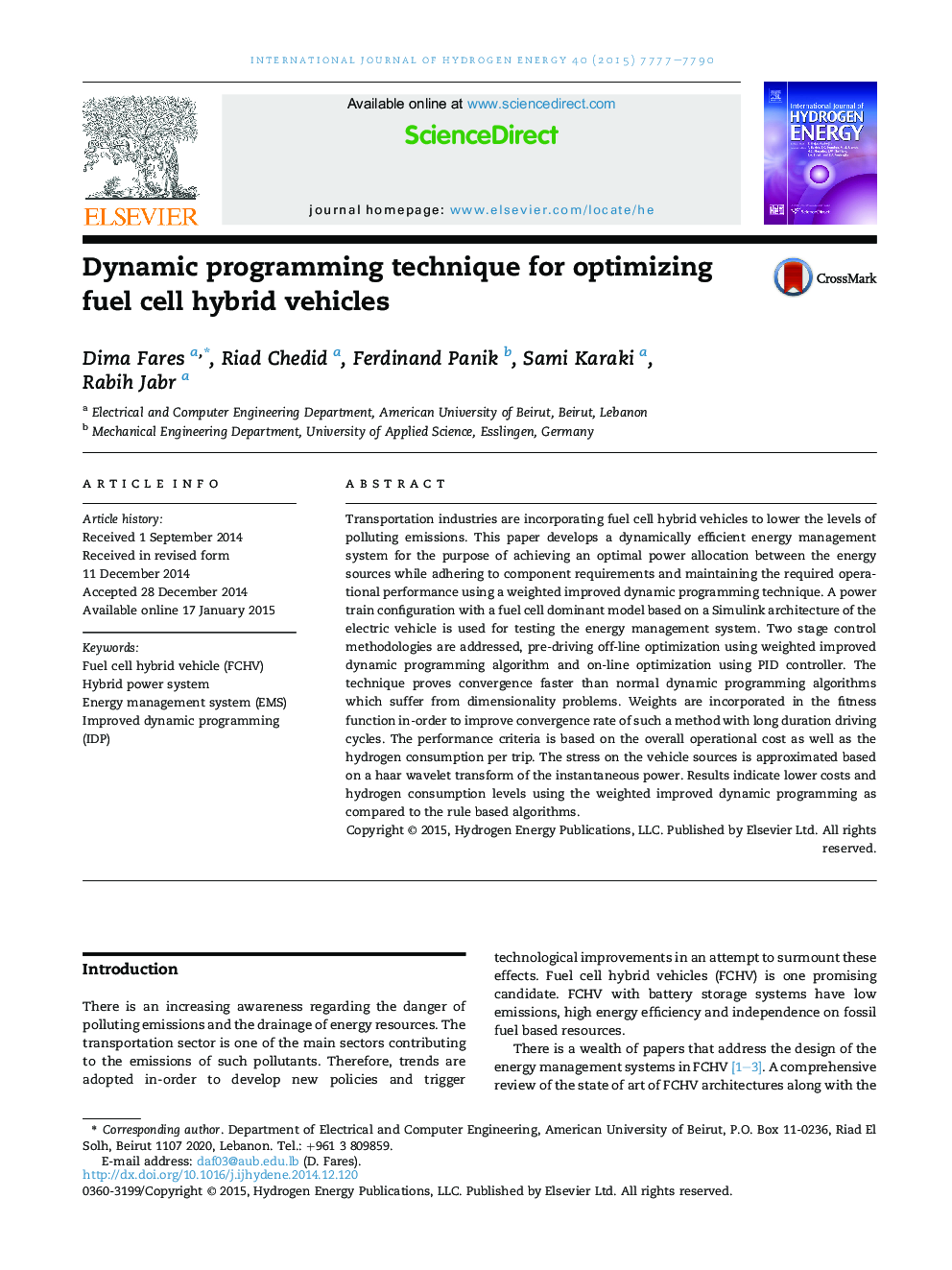| Article ID | Journal | Published Year | Pages | File Type |
|---|---|---|---|---|
| 1279753 | International Journal of Hydrogen Energy | 2015 | 14 Pages |
•Weighted improved DP for sub-optimal power allocation of FCHV along with fast convergence.•Compared to rule based method, hydrogen fuel consumption and operational cost are reduced.•Problem formulation considers life-cycle cost, components limits and ramp rates and battery SOC.•Simulink model of whole vehicle components is used for on-line testing.
Transportation industries are incorporating fuel cell hybrid vehicles to lower the levels of polluting emissions. This paper develops a dynamically efficient energy management system for the purpose of achieving an optimal power allocation between the energy sources while adhering to component requirements and maintaining the required operational performance using a weighted improved dynamic programming technique. A power train configuration with a fuel cell dominant model based on a Simulink architecture of the electric vehicle is used for testing the energy management system. Two stage control methodologies are addressed, pre-driving off-line optimization using weighted improved dynamic programming algorithm and on-line optimization using PID controller. The technique proves convergence faster than normal dynamic programming algorithms which suffer from dimensionality problems. Weights are incorporated in the fitness function in-order to improve convergence rate of such a method with long duration driving cycles. The performance criteria is based on the overall operational cost as well as the hydrogen consumption per trip. The stress on the vehicle sources is approximated based on a haar wavelet transform of the instantaneous power. Results indicate lower costs and hydrogen consumption levels using the weighted improved dynamic programming as compared to the rule based algorithms.
